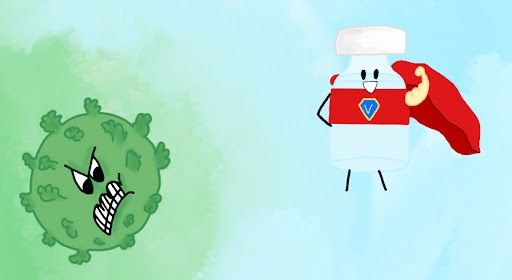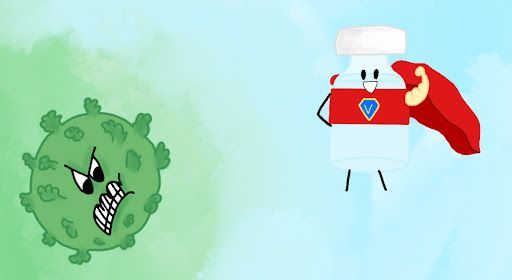Vaccines Save Lives

Since vaccines were invented, it is used as a very common prevention for most diseases. Vaccines are estimated to prevent at least 6 million deaths each year and save 386 million lives each year. And, That is how powerful of the invention the vaccine is.
On May 14 1796, Edward Jenner took fluid from a cowpox blister and scratched it into the skin of James Phipps, an eight-year-old boy. A single blister rose up on the spot, but James soon recovered. On July 1, Jenner inoculated the boy again, this time with smallpox matter, and no disease developed. The vaccine was a success.
Our immune system protects us from many infectious diseases. They destroy disease-causing germs (also known as pathogens) when they invade our bodies. If our immune system isn't strong or quick enough to prevent these germs from taking over our bodies, we get ill. We use vaccines to stop this from happening. A vaccine provides controlled exposure to a pathogen training and intensifies our immune system. This leads to it hastily fighting the diseases very effectively in the future.

We use vaccines to conserve ourselves from infectious diseases. So they are made from very powerful and vigorous ingredients. The most common ingredients are adjuvant, aluminium, and antibiotics. These substances are used to enhance the immune system. At an individual level, vaccines are very effective at providing protection against certain diseases, though they don’t provide immunity in 100% of cases.
Some vaccines cause a temporary headache, fatigue or loss of appetite. Vaccines do have some risk of adverse reactions, the most common being redness and soreness in the injected site or fever and allergic reactions.
Vaccines are given to people when they are at risk of contracting a disease. Children – whose immune systems take time to develop – are especially vulnerable, so many countries recommend vaccinating as early as is safe to do so to make sure they are protected. Some vaccines are also given to children because they work less effectively in adults.
Measles, for example, killed 90,000 people globally in 2016 and is a significant cause of death among young children. This is why children are given a measles vaccination at an early age.
To conclude, vaccines are a very effective thing that we use when disease-causing-germs enter our body and our immune system is not powerful or strong enough.
Reference:
https://wellcome.org/news/why-do-we-need-vaccines
https://vaccination-info.eu/en/vaccine-facts/how-vaccines-work
Author biography
Aishath Rizwana is 12 years old and studies at Rehendhi School in the Maldives. In her free time she enjoys making art, reading books, and listening to music. Her favourite author is Enid Blyton. She likes to play sports like badminton, handball and swimming. She also likes to do presentations and help out or take leadership in group presentations. Her current goals are to join the Maldives national swimming team and to become a pilot when she grows up.

Cite this article as:
Aishath Rizwana, Vaccines Save Lives, theCircle Composition, Volume 2, (2022). https://thecirclecomposition.org/vaccines/
